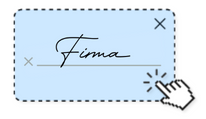In the business world, information can be a valuable and strategic asset for companies. For this reason, confidentiality agreements are commonly used to protect information and trade secrets. But what are confidentiality agreements, and why are they important?
What is a Confidentiality Agreement?
A confidentiality agreement, also known as an NDA (Non-Disclosure Agreement), is a legal contract that establishes the conditions for the exchange of confidential information between two parties. The main purpose of an NDA is to protect confidential information and prevent its disclosure or unauthorized use.
Why are Confidentiality Agreements Important?
Confidentiality agreements are important for several reasons:
- Protection of Confidential Information: They protect a company's confidential information and prevent its disclosure or unauthorized use.
- Building Trust: By establishing a confidentiality agreement, trust is fostered between the parties involved in the information exchange.
- Establishment of Responsibilities: Confidentiality agreements outline the responsibilities and obligations of the parties involved in the exchange of confidential information.
- Conflict Prevention: They prevent potential conflicts between the parties involved in the exchange of confidential information.
What Should a Confidentiality Agreement Include?
A confidentiality agreement should include the following elements:
- Identification of Parties: Clearly identify the parties involved in the exchange of information.
- Definition of Confidential Information: Clearly define the information considered confidential and protected by the agreement.
- Duration of the Agreement: Establish the duration of the agreement and the period during which confidential information will be protected.
- Exceptions: Specify exceptions where the disclosure of confidential information is allowed.
- Obligations of the Parties: Define the obligations and responsibilities of each party involved in the exchange of confidential information.
Examples of When to Sign a Confidentiality Agreement:
1. During Research and Development of a Product or Service: Protect innovative ideas and concepts shared during the research and development phase by signing confidentiality agreements with collaborators, suppliers, investors, or any other party involved.
2. When Hiring a New Employee or Collaborator: Provide confidential information to a new employee, such as trade secrets, production processes, or financial information, by having the employee sign a confidentiality agreement.
3. In Business Relationships with Third Parties: Sign confidentiality agreements with involved parties when sharing confidential information, such as prices, contracts, and agreement terms, in commercial relationships with third parties.
4. When Selling or Buying a Company: Protect confidential information, including financial status, internal processes, customers, and suppliers, during the sale or purchase of a company by signing confidentiality agreements.
5. When Sharing Information with Investors or Venture Capitalists: Ensure the confidentiality of shared information with investors or venture capitalists by signing confidentiality agreements that protect the shared information.
In conclusion, confidentiality agreements are essential tools to protect confidential information in various situations. From the research and development phase of a product or service to the sale or purchase of a company, it is advisable to sign a confidentiality agreement to protect information and ensure the confidentiality of the parties involved in the exchange of confidential information.





